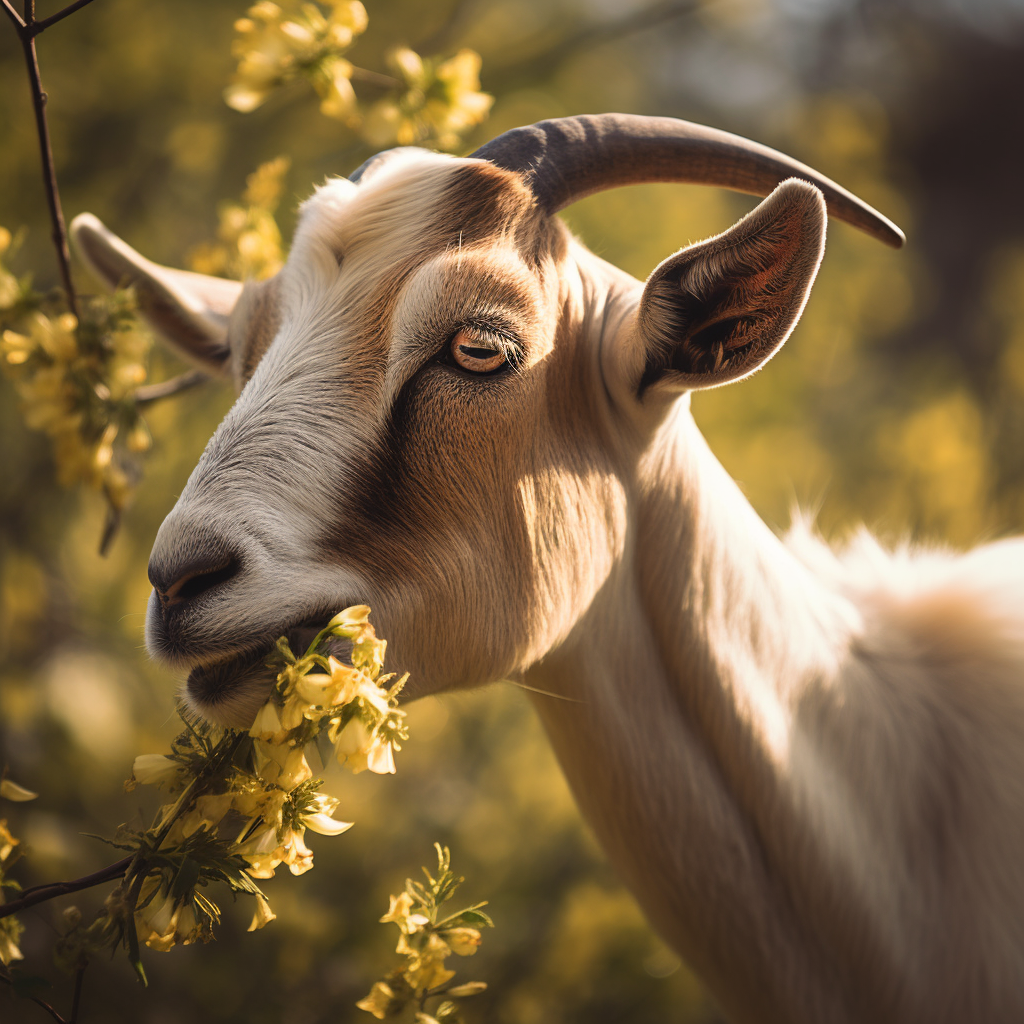Is Honeysuckle Poisonous to Goats? Ensuring they receive a balanced and nourishing diet is of utmost importance when it comes to their care and upbringing. As a goat owner, you may have wondered about including them in their diet. It is a blooming plant recognized for its vivid hues and delightful aroma.
In this article, we will delve into the topic of whether it is poisonous for them or not. We will also explore the nutritional value of goats and the types that are safe for them to consume.
Understanding Amur-Honeysuckle and Goats
Before we discuss the is amur honeysuckle poisonous for goats/animals? let’s briefly understand what It is and the importance of providing a balanced diet to them. It encompasses a diverse group of flowering plants found in different regions across the globe. These plants are celebrated for their exquisite appearance and are frequently grown and nurtured in gardens.

On the other hand, those are herbivores and rely on a diverse range of vegetation to meet their nutritional needs. A well-balanced diet for them consists of grass, hay, and various plants. While Those are generally selective eaters, it is important to be cautious about the plants they consume, as some can be toxic to them.
Is Honeysuckle Poisonous to Goats?
Its harmful effects on them largely depend on the specific type being consumed. Although certain types of that are not harmful to them, there are specific varieties that can be poisonous to them. Therefore, it is essential to correctly identify its particular type before providing it to your does.
Certain compounds found in some varieties, such as Saponins and Cyanogenic glycosides, can be harmful to them. These compounds may cause gastrointestinal upset, and diarrhea, and even lead to more severe symptoms in some cases. Therefore, it is important to exercise caution and consult with a veterinarian or an experienced goat expert before introducing it into your goat’s diet.
Nutritional Value of Honeysuckle For Animals
When consumed in appropriate quantities and the correct type, It can offer nutritional benefits to them. It contains various vitamins, minerals, and antioxidants contributing to a goat’s well-being. Some essential nutrients in them include vitamin C, calcium, magnesium, and potassium.
Is Honeysuckle Poisonous to Goats? Incorporating into a goat’s diet can provide a source of hydration, especially during dry periods or in hot climates. The moisture content can help keep hydrated, preventing issues related to dehydration. Additionally, the antioxidants present in it may have immune-boosting properties, promoting better health and disease resistance in them.
What Type of Honeysuckle Can Goats Eat?
While certain varieties of these can be toxic and other safe options available. It is crucial to distinguish the varieties that are safe and appropriate to eat. Here are some considerations when selecting it to busk and does.

- Japanese Honeysuckle (Lonicera japonica): Can goats eat Japanese honeysuckle? This variety of that is generally safe to eat. It is commonly found in many regions and is known for its sweet nectar. It can be a valuable addition to a goat’s diet, providing them with a nutritious and tasty treat.
- Trumpet Honeysuckle (Lonicera sempervirens): Another safe option for busks and does, This particular type of plant originated in North America and is known for its striking red or orange blossoms. Does can freely nibble on them without any harm, savoring their taste while gaining essential nutrients.
- Woodbine Honeysuckle (Lonicera periclymenum): It is a European species that is also suitable for them. It features clusters of fragrant flowers and can provide a nutritious snack for your animals.
Guidelines to Follow
Is Honeysuckle Poisonous to Goats? When offering its types to animals, it is essential to follow these guidelines:
- Identify the specific type: Ensure you correctly identify their species before allowing them to consume it. Refer to reliable sources or seek expert advice if you are uncertain.
- Offer in moderation: It should be provided as a supplement to a goat’s main diet and not as a primary source of nutrition. Maintaining a well-balanced diet for both busk and doe genders requires practicing moderation.
- Avoid contamination: Make sure that when you offer it to your animals is free from pesticides, herbicides, or any other harmful substances that could pose a risk to their health.
- Beware of allergic reactions: Monitor your both busk and doe genders closely for any signs of digestive disturbances or allergic reactions after introducing Caprifolium to them. If you notice any adverse symptoms, discontinue its use and consult a veterinarian.
Conclusion
Is Honeysuckle Poisonous to Goats? In conclusion, the toxicity of capri folium to busk depends on the specific variety consumed. While some types can be toxic, others, such as Japanese, trumpet, and woodbine honeysuckle, are safe options for them. It is crucial to accurately identify its species and offer it in moderation as part of a balanced diet. As with any dietary changes, it is recommended to consult with a veterinarian or an experienced goat expert to ensure the well-being of your animals.
FAQs (Frequently Asked Questions)
1. Can animals eat all types of honeysuckle?
Animals cannot eat all types because certain varieties can be toxic to them, so it is important to identify safe options, such as Japanese, trumpet, and woodbine honeysuckle.
2. What are the signs of honeysuckle toxicity in goats?
Signs of harmful effects in them may include gastrointestinal upset, diarrhea, reduced appetite, and, in severe cases, more serious symptoms such as difficulty breathing or abnormal behavior.
3. Can Animals eat honeysuckle leaves and stems?
They should primarily consume the flowers and leaves of honeysuckle, avoiding the stems as they can be tough and less palatable. It is recommended to remove the stems before offering them.
